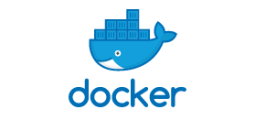Docker: Leading the Way in Containerization and DevOps Innovation
Docker is a transformative technology that has redefined how software is developed, tested, and deployed. Founded in 2013, Docker introduced a new approach to application deployment through containerization, addressing key challenges faced by developers and operations teams. Containers, which encapsulate applications and their dependencies into a single, portable unit, have become a fundamental component of modern software development and deployment practices. Docker’s containerization technology has enabled organizations to streamline their development workflows, enhance scalability, and improve consistency across different environments. By providing a unified platform for managing and running containers, Docker has facilitated the adoption of DevOps practices and continuous integration/continuous deployment (CI/CD) pipelines, helping organizations accelerate their software delivery cycles.The Evolution of Docker: From Startup to Industry Leader
Docker was founded by Solomon Hykes and his team in 2013, to simplify application deployment and management. The initial release of Docker introduced a lightweight containerization technology that allowed developers to package applications and their dependencies into portable containers. This innovation quickly gained traction within the developer community and the broader tech industry, leading to the rapid adoption of Docker’s technology. Docker’s rise to prominence was fueled by its ability to address key pain points in software development. Prior to Docker, developers faced challenges related to environment consistency, dependency management, and application portability. Docker’s containers provided a solution to these problems by isolating applications from their underlying infrastructure, ensuring that they could run consistently across different environments. In 2014, Docker released Docker 1.0, marking a significant milestone in the platform’s evolution. The release of Docker 1.0 introduced new features and improvements, including enhanced container orchestration capabilities and integration with popular cloud platforms. Docker’s success continued to grow, with the company expanding its offerings to include Docker Swarm for container orchestration and Docker Hub for container image management.Docker’s Technology: Key Features and Benefits
- Containerization: At the heart of Docker’s technology is its containerization platform, which allows developers to package applications and their dependencies into isolated containers. Containers provide a consistent runtime environment, eliminating issues related to environment inconsistencies and dependency conflicts. This enables developers to build, test, and deploy applications with confidence, knowing that they will behave consistently across different stages of the software lifecycle.
- Docker Engine: The Docker Engine is the runtime environment that powers Docker’s containerization technology. It is responsible for creating, running, and managing containers on a host system. The Docker Engine provides a lightweight and efficient runtime for containers, allowing developers to run multiple containers on a single host without significant overhead.
- Docker Compose: Docker Compose is a tool that simplifies the management of multi-container applications. It allows developers to define and manage complex applications with multiple containers using a simple configuration file. Docker Compose automates the deployment and orchestration of containers, making it easier to manage applications with multiple services and dependencies.
- Docker Swarm: Docker Swarm is Docker’s native clustering and orchestration tool. It provides built-in support for scaling and managing containerized applications across a cluster of Docker hosts. Docker Swarm simplifies the deployment of distributed applications and ensures that containers are distributed and balanced across the cluster.
- Docker Hub: Docker Hub is a cloud-based registry service for storing and sharing Docker images. It provides a central repository for container images, allowing developers to easily access and distribute pre-built images. Docker Hub also supports automated builds, making it easy to integrate Docker images into CI/CD pipelines.
Docker’s Impact on DevOps and Continuous Integration/Continuous Deployment (CI/CD)
Docker has played a pivotal role in advancing DevOps practices and CI/CD pipelines. By providing a consistent and portable runtime environment, Docker has enabled organizations to implement continuous integration and continuous deployment workflows with greater efficiency. Key benefits of Docker in DevOps and CI/CD include:- Environment Consistency: Docker ensures that applications run consistently across different environments, from development to production. This reduces the risk of environment-related issues and simplifies the deployment process, enabling teams to deliver software more reliably.
- Faster Development Cycles: Docker’s lightweight containers enable faster application deployment and scaling. Developers can quickly build and test applications in isolated containers, accelerating the development cycle and improving time-to-market.
- Simplified Testing: Docker facilitates testing by providing consistent and reproducible environments for running test cases. Developers can use Docker containers to create isolated test environments that closely mirror production systems, ensuring accurate and reliable test results.
- Scalability: Docker’s containerization technology supports the efficient scaling of applications. Containers can be easily replicated and deployed across multiple hosts, allowing organizations to handle increased workloads and traffic with minimal overhead.
- Docker’s Role in the Modern Software Ecosystem Docker’s impact extends beyond individual organizations, influencing the broader software ecosystem. The adoption of Docker has led to the rise of container orchestration platforms, cloud-native applications, and microservices architectures. Docker’s technology has become a key enabler of modern software practices, including:
- Microservices Architecture: Docker’s containerization technology aligns well with the microservices architectural pattern, which involves breaking applications into smaller, independent services. Containers provide a lightweight and portable way to deploy and manage microservices, facilitating the development of scalable and resilient applications.
- Cloud-Native Applications: Docker is integral to the development and deployment of cloud-native applications. Containers enable applications to run consistently across different cloud environments, making it easier to leverage cloud platforms and services.
- Hybrid and Multi-Cloud Deployments: Docker’s portability and consistency make it well-suited for hybrid and multi-cloud deployments. Organizations can deploy containers across different cloud providers and on-premises systems, achieving flexibility and avoiding vendor lock-in.

